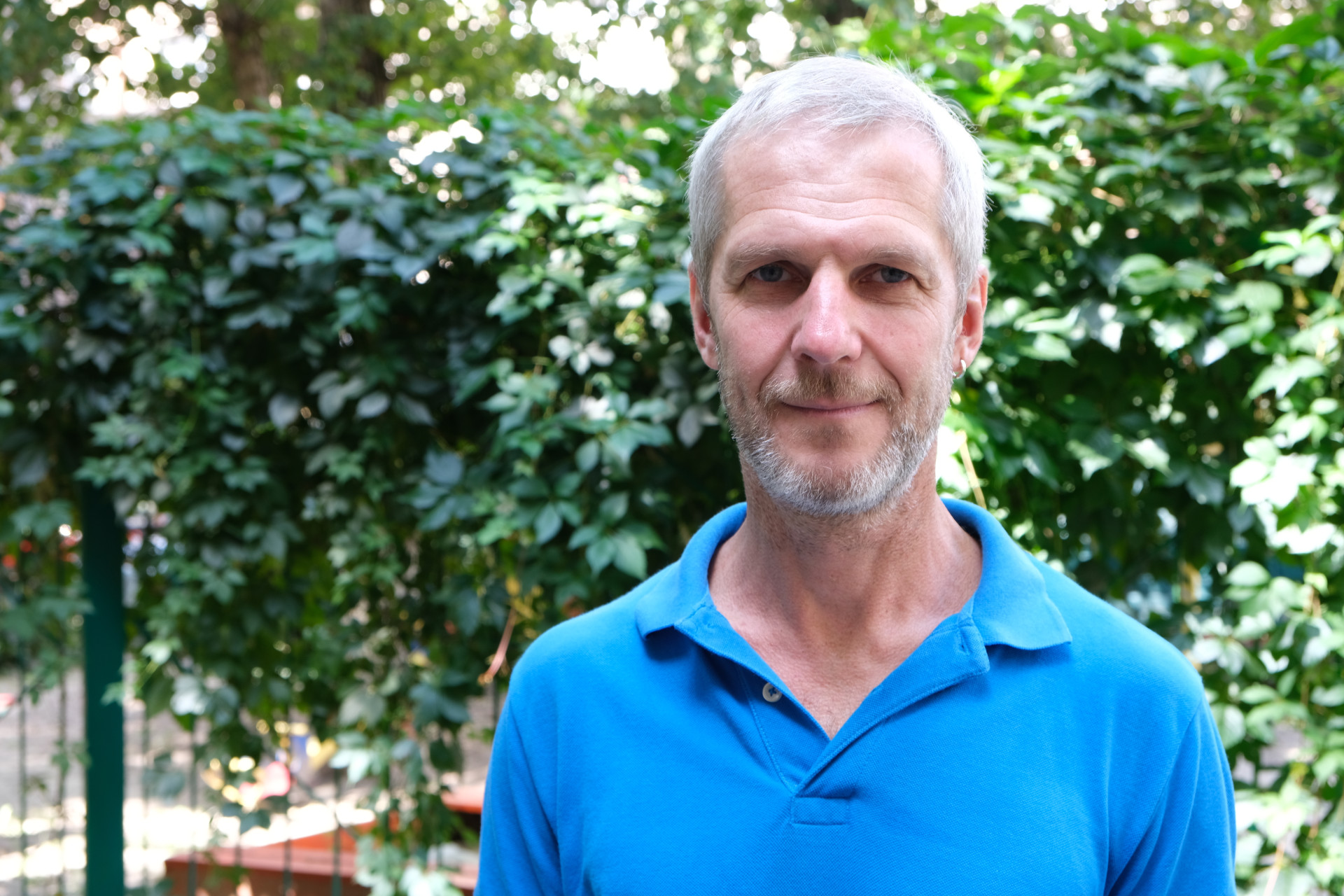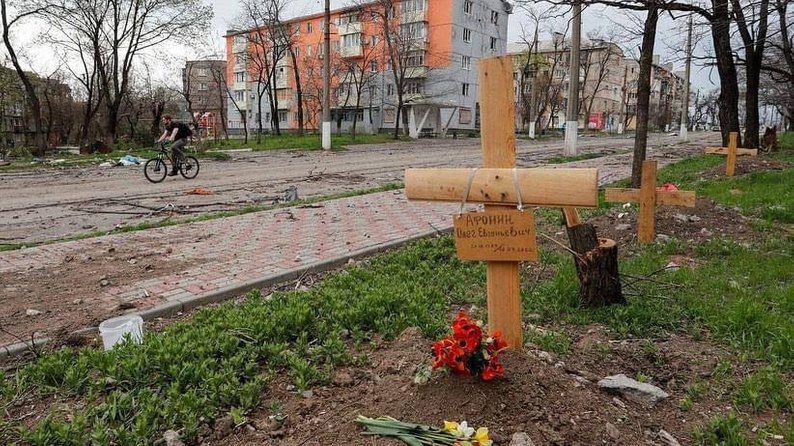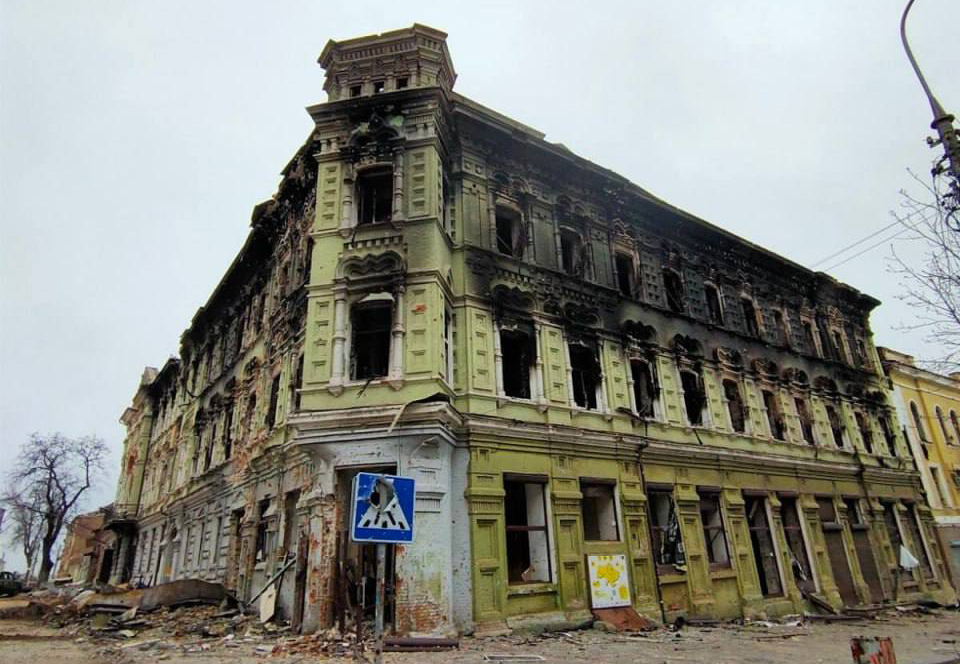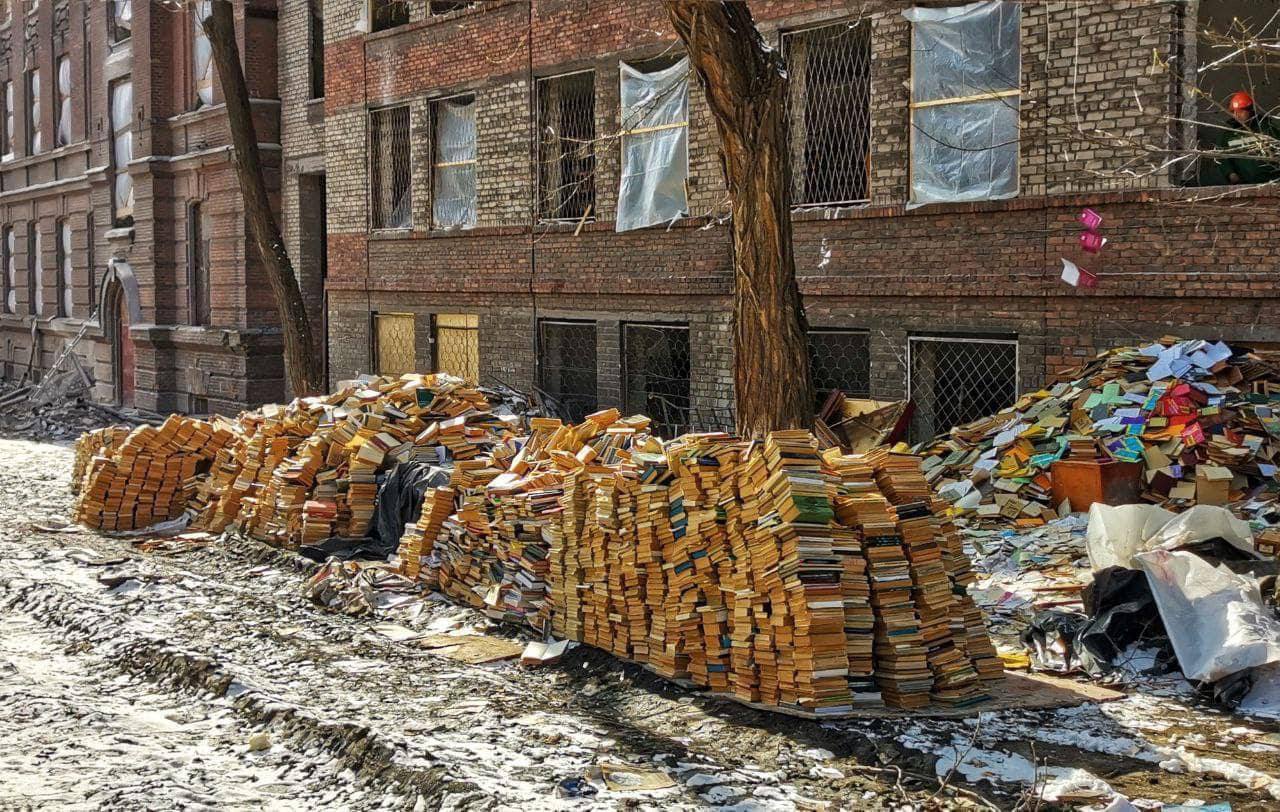‘The concept of genocide needs to be re-examined’, says author of submission to the International Criminal Court

This is the first document to systematically demonstrate that the actions of Russia in Ukraine constituted “the crime of crimes”, genocide. It is not easy to prove that genocide has taken place, says Mikhailo Romanov, one of the authors of the submission, but it is essential to do so. Furthermore, he is convinced that the juridical grounds for defining the crime of genocide are today outdated and require re-examination. This has been well demonstrated by the Russo-Ukrainian war.
What forms the heart of this submission?
We are convinced that acts of genocide were perpetrated in the city of Mariupol and surrounding communities. These acts took three forms: murder; the creation of living conditions that led to the destruction of the protected group; and the deportation of children.
The protected group was defined by its national criteria, Ukrainians united by common citizenship, rights and obligations. They identify with the Ukrainian State. The national membership of Mariupol was already tested in 2014. The people who remained there, we consider, were those who identified themselves with Ukraine.
Have there already been cases when genocide against a national group in the political sense (not in an ethnic, racial or religious sense) was investigated in judicial terms?
That was how the ad hoc tribunals for the former Yugoslavia and Rwanda proceeded, but it did not happen frequently or with great success. Religious and ethnic groups were easier to identify.
How is Russia behaving? The Russians have been offering people in Ukraine Russian passports, thereby eroding the protected national group, creating the impression that people do not mind which State they belong to. In this way they have been destroying the national group. Certain judges of international tribunals have asserted that a group may be destroyed by other means, not just in a physical or biological sense. This is one example when the group is simply diluted or eroded.

Putin and other Russian leaders have often talked of destroying Ukraine as such, the entire State. How can their criminal intentions be proven in the case of Mariupol?
In other parts of Ukraine, the Russians were unable to put these intentions into practice. There was a powerful resistance. Mariupol was in a different position, strategically and geographically. When the invasion began in February 2022 half of the city was already surrounded, by Russia to the east and to the south (where Russia controlled the sea).
Do we know the total number of victims?
The final figure is not known. We tried to calculate the total indirectly and reached a figure of some 80,000. This is, of course, an approximation and will probably grow. Some of the people who left the city did so against their will: they may be regarded as victims of genocide.
If the International Criminal Court begins to investigate your report, do we have witnesses who are ready to testify about these crimes?
If we are considering those who were killed or wounded there are such witnesses among those who left Mariupol. Neither is it difficult to show that destruction in and around the city created living conditions leading to the elimination of the protected group: it’s enough to compare satellite photos and Google maps before and after the invasion. Some areas have been turned into wasteland. Proving the “special intention” [to commit genocide] is another matter. But it should raise no doubt. No doubt at all.
From a Ukrainian point of view, there is no doubt that such an intention exists …
We need to confirm that genocide took place, not prove it. Proving that genocide took place means gathering evidence that confirms the intention. If we gather such evidence, we must have a base where we can already see that intention and add evidence to that base. It can prove very hard when dealing with genocide to identify such a base. I consider that we must nevertheless present all the facts and create a tidal wave of information that, in time, will make it obvious that the crime of genocide has been committed.

Russia has also tried to accuse Ukraine of genocide.
Russians accused Ukraine of genocide in the Donbas, as I recall. The attributes of such a crime are totally absent there, however: I’m referring to the attributes formulated in the Rome Statute. I’m no military strategist but at that time Ukraine simply did not possess the weapons of indiscriminate destruction that could lead to such consequences. The balance of forces was not such as to violate the principle of proportionality that is to be found throughout International Humanitarian Law. Ukraine brought a case concerning Russian aggression and invoked the term “genocide”.
Let’s turn to the deportation of children as a form of genocide. The main Russian argument was that they are acting in the interests of the children. What can we do about that? Will it hinder the proof of genocide?
International Humanitarian Law lays down rules about such conflicts. When children must be protected the Aggressor-State should take certain measures. If it deports part of the population, evacuating children, this must be voluntary and families cannot be divided. They are provided with a safe haven. Thereafter, people either return to their country via safe territories or are handed over to a neutral State that has assumed such a responsibility during this conflict. Russian arguments that they are acting in the interests of deported children are, therefore, quite unacceptable.
This part of the submission will have the greatest chance of success?
I believe so. That was why the International Criminal Court issued arrest warrants for those crimes. They are the most obvious. This is something we can build on, but the office of the ICC Prosecutor is investigating these acts as a war crime, let me remind you, not as genocide.
Indeed, why should we recognise these crimes as genocide? Let them prosecute the perpetrators as war criminals. What are we after here?
That’s largely a theoretical question. We can clearly trace a historical tendency to not acknowledge the Ukrainian nation and State as such: this includes the Holodomor and other examples. It is important for the self-identification of the Ukrainian nation as a whole [to recognise these crimes as genocide]. It’s also important, I believe, from a legal point of view. Although I think that the concept of genocide as a crime needs to be re-examined. It has been refuted by time and no longer works. Today if the political will is present, we recognise that genocide has been committed; if there is no political will, we do not recognise the crime as genocide. That is legally unacceptable.
You consider that the legal definition of the crime of genocide needs to be re-examined?
Yes, I think that the present definition lacks clear criteria. As presently formulated, it requires proof of a dual intention and that contradicts Ukrainian legal doctrine. There exists an intention, how can it be dual? That’s the same as saying there’s a murder but the intention to murder by decapitation is a special intention.
There’s a dual intention, in other words: to liquidate the protected group and to eliminate it in a particular way.
Yes, and it’s an absurdity to prove this. If someone intends to liquidate a group, what difference does it make how that group is to be eliminated? That’s the first deficiency of this formula.
The second deficiency (and this has very often been seen in the practice of the ad hoc international tribunals) is that the perpetrators of genocide are at best middle-ranking individuals. Those who represent the highest political level are almost never put on trial. This is incomprehensible. Genocide is a global intention and it is not possible that a certain “Major Petrov” took the decision, on his own, to liquidate all Ukrainians.
A third deficiency: Raphael Lemkin began by stating that with genocide it is the final goal that matters not the way it is implemented. When he created the theory and concept, he used the term “cultural genocide”: he even preferred that approach. It is sufficient, after all, to destroy a culture, the foundation, and the building ceases to exist. Then, however, that approach was considered unacceptable. And I can see why: the concept was being examined by countries that were, for the most part, empires and metropolitan powers. Of course, how would they cut off the branch on which they rested?

One more example of the concept’s ambivalence is the experience of Cambodia under the Khmer Rouge. Terrible crimes were committed there but they were not termed genocide, strangely enough.
A final point of some significance is that Russia is a nuclear power. It has many atomic warheads and if it launched them a large city would be destroyed. Yet this would not count as genocide because it does not fit in the definition existing today. Isn’t nuclear blackmail another form of genocide? Today the crime of genocide could be perpetrated in quite another way, without physical contact. So the concept of genocide must be re-examined.